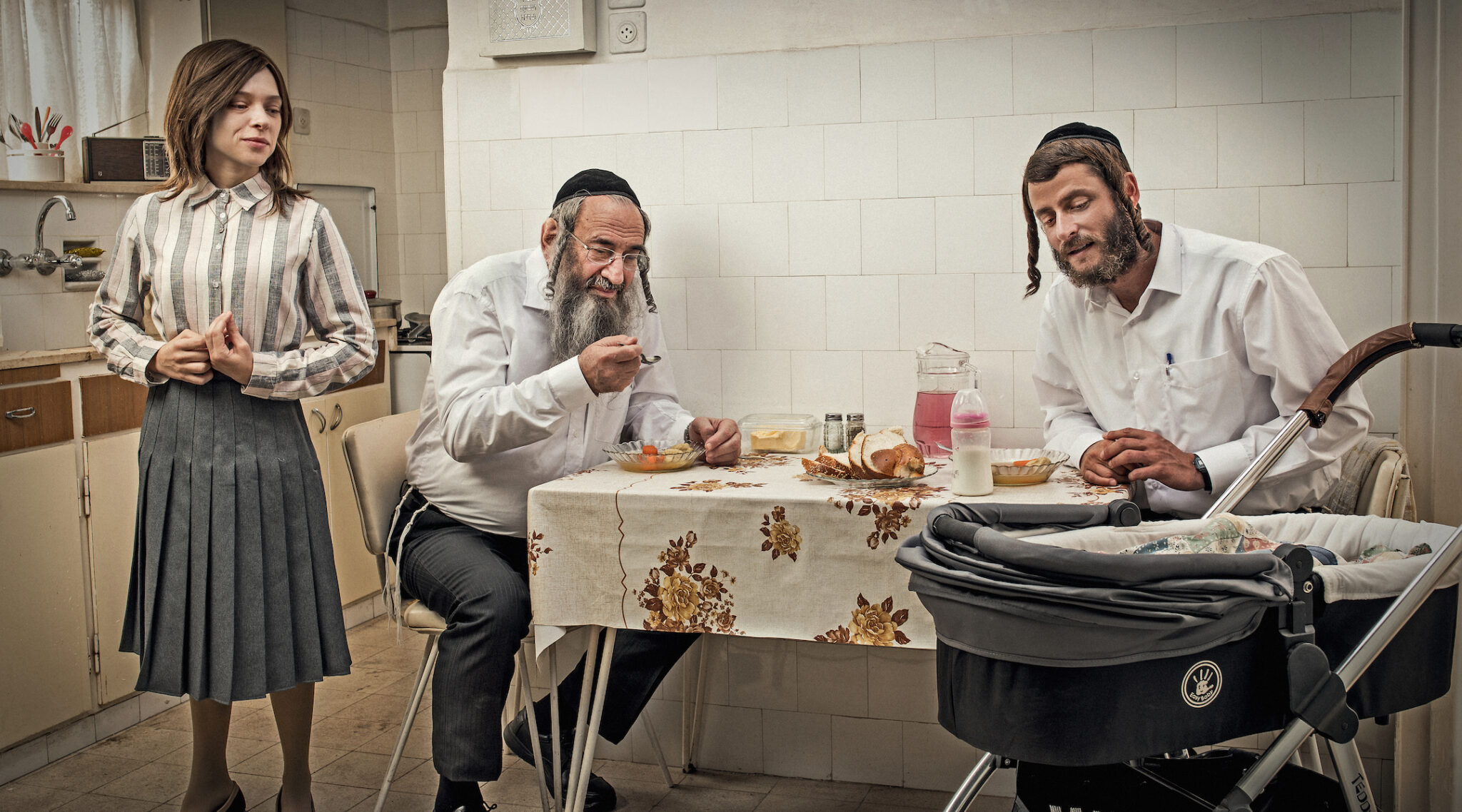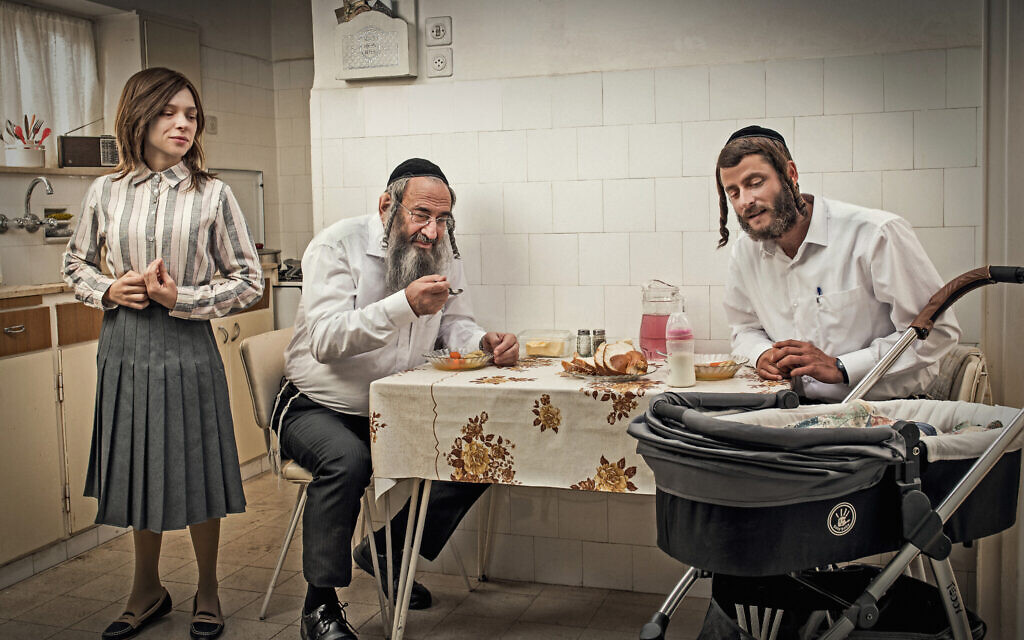Pauline
Forums Admin
As @Jim Zurer posted, Season 3 of Shtisel starts on March 25 on Netflix. The previous two seasons are available now on Netflix. I recommended them to some non-Jewish friends and they are enjoying the series. It made me realize that many things are not explained in the series, things that people might miss if they are not familiar with Orthdox-Jewish and/or Israeli life, so I thought I would start this thread to point out the things I notice, hoping others will jump in. I know that I am no expert on this, but I have learned a thing or two on our trips to Israel, so I am going to give it a go.
HAREDI
In Shtisel the main characters are Haredi, a type of orthodox Judaism which has something in common with regular Judaism, but is more extreme. They observe a more strict set of religious laws.
From Wikipedia: Haredi Judaism (Hebrew: חֲרֵדִי Ḥaredi, IPA: [ħaʁeˈdi]; also spelled Charedi, plural Haredim or Charedim) consists of groups within Orthodox Judaism characterized by a strict adherence to halakha (Jewish law) and traditions, as opposed to modern values and practices. Its members are usually referred to as ultra-Orthodox in English; however, the term "ultra-Orthodox" is considered pejorative by some of its adherents who prefer terms like strictly Orthodox.[3] Haredi Jews regard themselves as the most religiously authentic group of Jews, although this claim is contested by other streams of Judaism.
LANGUAGE
Hebrew is the official language of Israel and was adopted when Israel was formed, even though most European Jews who came to Israel spoke Yiddish (a dialect of German), because they did not want to bring the language of the ghetto to the new country.
In Shtisel, the Haredi characters speak Yiddish to each other and Hebrew when they are out of their community. To a non-Hebrew/non-Yiddish speaker, this is not apparent because we are reading the English subtitles and they don't indicate which language is being spoken.
CLOTHING
Men: It is my understanding that the traditional dress for men, with the black suits, white shirts and hats, dates back to how religious Jews dressed in Eastern Europe, before they fled to Israel (then Palestine) for safety. They wear black hats on a daily basis and have fur hats, shtreimel, for special occasions. They also wear a tallit, a fringe that hangs down from their shirt.
Women: Women do not wear trousers, which are considered immodest, but wear long dresses/skirts. After marriage they have to cover their hair, but the tradition now is to cover it with a wig, which I find confusing because it is still hair and looks attractive.

Two Haredi on a bus in Jerusalem.
LOCATION
Shtisel is set in Jerusalem where the family live in a crowded Haredi neighborhood called Ge'ula. Ge'ula and Mea She'arim are adjoining neighborhoods in the center of Jerusalem, a few blocks north of Jaffa Street, one of the main streets in Western Jerusalem, where the light rail runs.
Google Map

In season 1, the older woman that Akiva is in love with, goes to her apartment in Bnei Brak, an orthodox suburb of Tel Aviv, on its eastern edge.
In either season 1 or 2, Akiva spends a night at a fellow artists house in Ein Karem but then realizes he has forgotton to pray so he goes back to his neighborhood where daily prayer is central to his life. Ein Karem is a beautiful suburb on the western edge of Jerusalem. [edited]
In season 1 Akiva goes to the art gallery and I recognized a sign on the street so took a photo the next time I was in Jerusalem. I think the art gallery was on the street across from the King David Hotel.

Scene from Shtisel was shot here.
TRANSPORTATION
In season 1 we see Akiva taking a shared taxi, a sherut. These are mini vans that wait until they are full and then take everyone to a destination and are an alternative to the bus or train.
COOKING
Kosher food laws require that meat and dairy not be mixed in meals. When we rent apartments in Jerusalem, they are usually Kosher, which means there are separate dishes, cutlery and pots - one for cooking with meat, the other for cooking with dairy. They even have different dishwashing sponges - one for meat, one for dairy. You are asked to follow the cooking rules and it is easy for us because we don't eat meat or much dairy. If we bring butter into the apartment, I keep it very separate from everything. That way we can use any of the dishes (and are careful only if using butter).
In Shtisel they have two sinks - one for meat, one for dairy. I have read about this but have not see this in person.
FOOD
In Israel you find a middle-Eastern style of food everywhere - hummus, falafel, tahini. You don't see this as much in Shtisel. They seem to eat more Eastern European foods. But they do make salads, which are very popular in Israel.
---------
That is all I can think of for now. Post below with corrections or other things we should notice and I will add them to this original post. @ItalophileNJ I am counting on you!
HAREDI
In Shtisel the main characters are Haredi, a type of orthodox Judaism which has something in common with regular Judaism, but is more extreme. They observe a more strict set of religious laws.
From Wikipedia: Haredi Judaism (Hebrew: חֲרֵדִי Ḥaredi, IPA: [ħaʁeˈdi]; also spelled Charedi, plural Haredim or Charedim) consists of groups within Orthodox Judaism characterized by a strict adherence to halakha (Jewish law) and traditions, as opposed to modern values and practices. Its members are usually referred to as ultra-Orthodox in English; however, the term "ultra-Orthodox" is considered pejorative by some of its adherents who prefer terms like strictly Orthodox.[3] Haredi Jews regard themselves as the most religiously authentic group of Jews, although this claim is contested by other streams of Judaism.
LANGUAGE
Hebrew is the official language of Israel and was adopted when Israel was formed, even though most European Jews who came to Israel spoke Yiddish (a dialect of German), because they did not want to bring the language of the ghetto to the new country.
In Shtisel, the Haredi characters speak Yiddish to each other and Hebrew when they are out of their community. To a non-Hebrew/non-Yiddish speaker, this is not apparent because we are reading the English subtitles and they don't indicate which language is being spoken.
CLOTHING
Men: It is my understanding that the traditional dress for men, with the black suits, white shirts and hats, dates back to how religious Jews dressed in Eastern Europe, before they fled to Israel (then Palestine) for safety. They wear black hats on a daily basis and have fur hats, shtreimel, for special occasions. They also wear a tallit, a fringe that hangs down from their shirt.
Women: Women do not wear trousers, which are considered immodest, but wear long dresses/skirts. After marriage they have to cover their hair, but the tradition now is to cover it with a wig, which I find confusing because it is still hair and looks attractive.
Two Haredi on a bus in Jerusalem.
LOCATION
Shtisel is set in Jerusalem where the family live in a crowded Haredi neighborhood called Ge'ula. Ge'ula and Mea She'arim are adjoining neighborhoods in the center of Jerusalem, a few blocks north of Jaffa Street, one of the main streets in Western Jerusalem, where the light rail runs.
Google Map
In season 1, the older woman that Akiva is in love with, goes to her apartment in Bnei Brak, an orthodox suburb of Tel Aviv, on its eastern edge.
In either season 1 or 2, Akiva spends a night at a fellow artists house in Ein Karem but then realizes he has forgotton to pray so he goes back to his neighborhood where daily prayer is central to his life. Ein Karem is a beautiful suburb on the western edge of Jerusalem. [edited]
In season 1 Akiva goes to the art gallery and I recognized a sign on the street so took a photo the next time I was in Jerusalem. I think the art gallery was on the street across from the King David Hotel.
Scene from Shtisel was shot here.
TRANSPORTATION
In season 1 we see Akiva taking a shared taxi, a sherut. These are mini vans that wait until they are full and then take everyone to a destination and are an alternative to the bus or train.
COOKING
Kosher food laws require that meat and dairy not be mixed in meals. When we rent apartments in Jerusalem, they are usually Kosher, which means there are separate dishes, cutlery and pots - one for cooking with meat, the other for cooking with dairy. They even have different dishwashing sponges - one for meat, one for dairy. You are asked to follow the cooking rules and it is easy for us because we don't eat meat or much dairy. If we bring butter into the apartment, I keep it very separate from everything. That way we can use any of the dishes (and are careful only if using butter).
In Shtisel they have two sinks - one for meat, one for dairy. I have read about this but have not see this in person.
FOOD
In Israel you find a middle-Eastern style of food everywhere - hummus, falafel, tahini. You don't see this as much in Shtisel. They seem to eat more Eastern European foods. But they do make salads, which are very popular in Israel.
---------
That is all I can think of for now. Post below with corrections or other things we should notice and I will add them to this original post. @ItalophileNJ I am counting on you!
Last edited:





